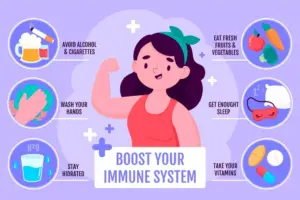Arthritis is a general term used to describe inflammation in one or more joints. It is a common condition that can cause pain, stiffness, and difficulty moving the affected joints.
There are several types of arthritis, including:
- Osteoarthritis: a degenerative condition caused by the wear and tear of the cartilage that cushions the joints
- Rheumatoid arthritis: an autoimmune disorder that causes inflammation in the joints and surrounding tissue
- Gout: a type of arthritis caused by a build-up of uric acid crystals in the joints
- Psoriatic arthritis: a form of arthritis that affects people with psoriasis, a condition that causes scaly, red patches on the skin
- Lupus arthritis: a form of arthritis that affects people with lupus, a chronic autoimmune disorder
Causes of arthritis can include:
- Age-related wear and tear
- Autoimmune disorders
- Genetics
- Infections
- Trauma or injury
- Obesity
Symptoms of arthritis can include:
- Pain and stiffness in the joints
- Swelling and tenderness in the joints
- Limited range of motion in the affected joints
- Fatigue
- Stiffness and pain that is worse in the morning
Diagnosis of arthritis is usually made by a physical examination, an evaluation of medical history, X-ray, MRI, and blood tests.
Treatment for arthritis will depend on the type of arthritis and the severity of symptoms.
Some common treatments include:
- Nonsteroidal anti-inflammatory drugs (NSAIDs) to reduce pain and inflammation
- Physical therapy to improve range of motion and strength
- Exercise to help maintain flexibility and improve overall health
- Steroids to reduce inflammation
- Surgery to repair or replace damaged joints
- Disease-modifying antirheumatic drugs (DMARDs) for certain types of arthritis, such as rheumatoid arthritis
It is important to note that arthritis is a chronic condition, and there is no cure, but treatment can help manage symptoms and improve quality of life.
To learn more about arthritis, please visit:
Dr Ibrahim Yahli MD MRCPsych



